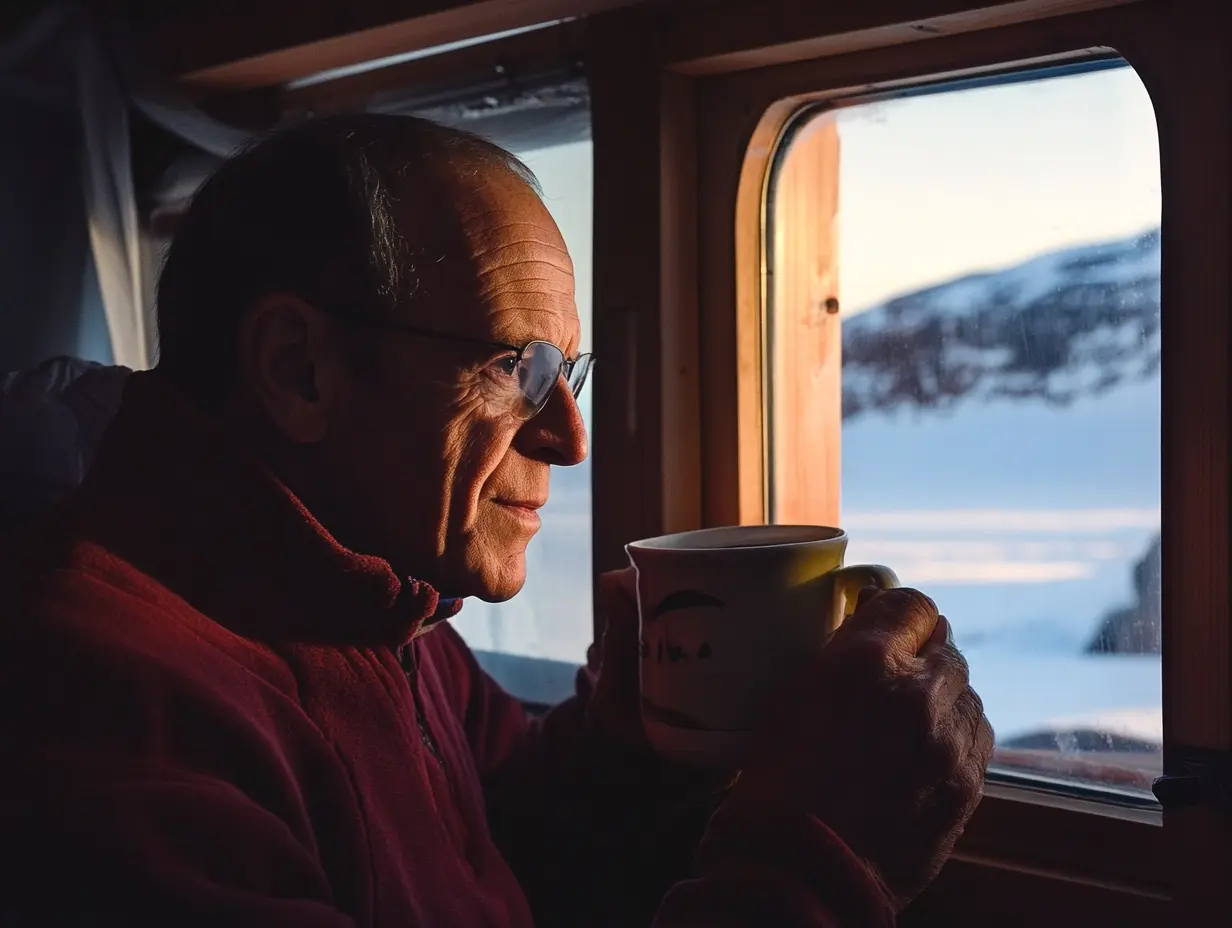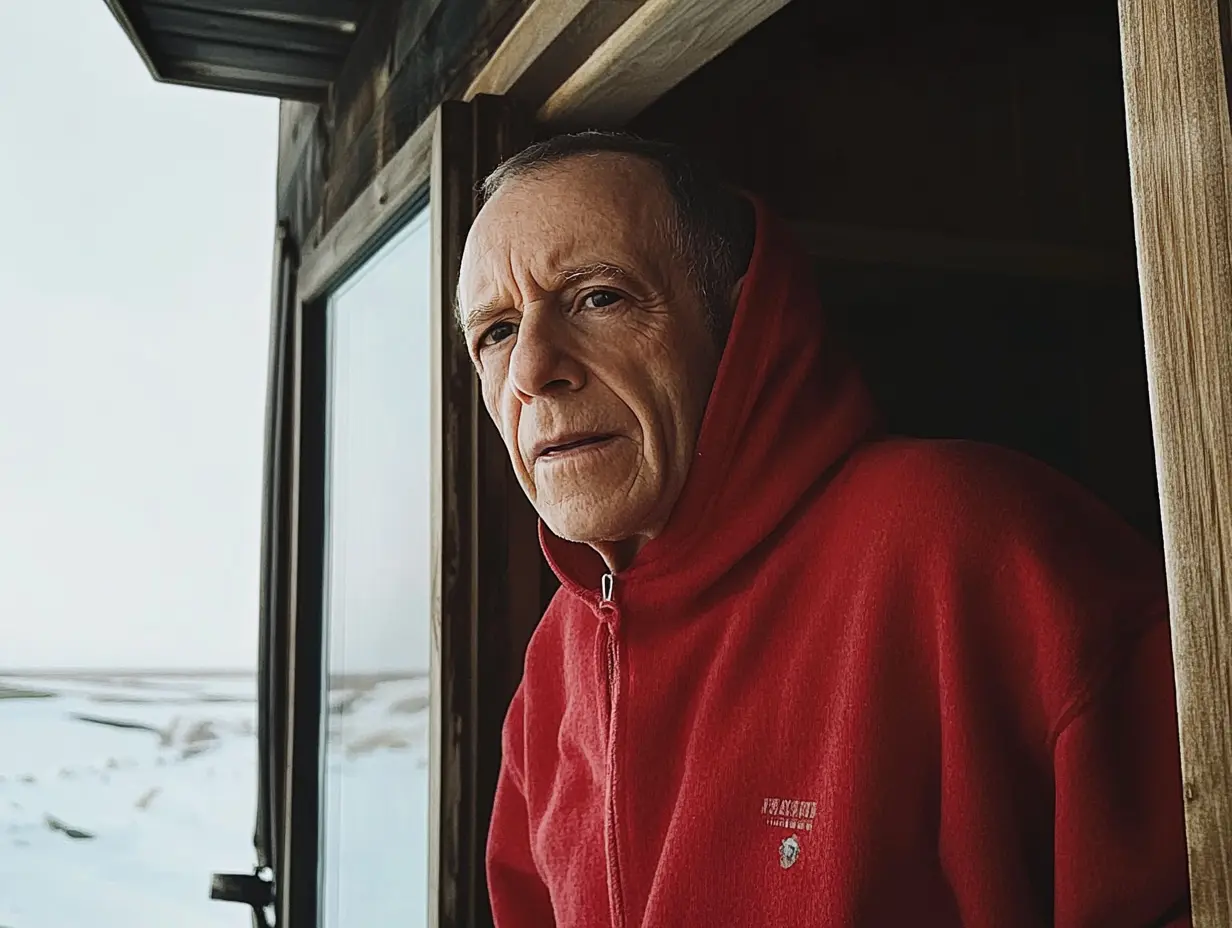The sound came from behind—slow, wet, and heavy, dragging across the ice like something being pulled from the deep. Caleb froze. The wind had died, the drill had stopped, and for a split second, the Arctic lay still. He turned, heart hammering, and saw it.
A massive shape emerged from the white—dark, hulking, with long tusks catching the light. A walrus. It was headed straight toward him, eyes fixed, breath puffing from flared nostrils. Caleb took a step back, then another, trying not to slip. But his boot caught the edge of his gear bag. He went down hard. The air left his lungs as he hit the ice.
His bag tipped over beside him, scattering a few pieces of dried fish. The walrus lunged. It moved faster than he thought possible—snorting, grunting, tusks low—and closed the distance in seconds. Caleb threw up his arms, sure this was it. He’d never felt so small… or so certain that he wasn’t getting back up.

Caleb Morgan sipped lukewarm coffee as he stared out the cabin window. The Arctic morning was quiet, the kind of stillness that only came with thick snow and freezing air. His breath fogged the glass as he leaned in, searching the horizon for movement. Nothing.
He’d lived out here for almost a year. As a marine biologist, he was studying how melting ice was affecting seal and walrus populations. Most days were the same—check the instruments, note the temperatures, track wildlife if any passed through. It wasn’t glamorous, but it gave him space to think.

He set his mug down and pulled on his outer layers. The routine helped pass the time. Outside, the cold met him like a slap—sharp and familiar. His boots crunched across the snow as he walked toward the monitoring station half a kilometer away.
It was the same path he took every day. His breath came in clouds, and ice clung to the edges of his scarf. When he reached the station, he brushed snow off the metal casing, plugged in his tablet, and waited for the data to load.